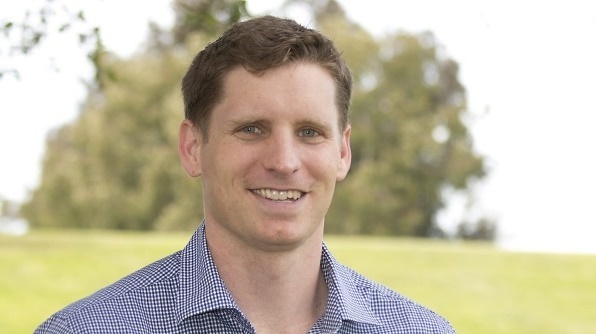Andrew Hastie, the Liberal candidate in the Canning by-election has declared that questions about his family and his religious beliefs are unacceptable.
At a press conference in Mandurah yesterday Mr Hastie told journalists that questions about his father and his wife’s religious beliefs were “completely irrelevant to this campaign”.
Flanked by former Prime Minister John Howard, Mr Hastie suggested that his political rivals had been briefing the media and encouraging reporters to ask questions about his wife and father.
Mr Hastie told reporters that questions about theology were not relevant to the people of Canning, declaring his views on topics such as homosexuality and creationism as “totally unacceptable”.
Mr Hastie said that web articles about homosexuality published under his wife’s name’s on a website for St Andrew’s Anglican Church in Shenton Park were not written by her, although they appeared with her byline.
One of the articles said that Christians; “cannot receive homosexual desires and embrace homosexual practice as good and holy things”. Mr Hastie said that the articles were simply uploaded by his wife Ruth as part of her duties as the church’s receptionist.
Mr Hastie did not outline what questions have been asked about his father, but it is know that Mr Hastie’s father, who is a Presbyterian Minister, has written widely about creationism.
Mr Hastie said he had served proudly in the military as an Anglican and had worked alongside gay personnel.
“As an Anglican I have served my country proudly,” he said. “I have served with gay servicemen, I have served alongside Muslim soldiers in Afghanistan, and I am proud to have fought for the freedom of religion that we enjoy in Australia.” Mr Hastie told reporters.
Mr Hastie said he was opposed to same-sex marriage, but said the Australian people should make a decision on such a crucial issue by a popular vote.
OIP Staff







Insofar as they impact on his conduct as an elected representative, Mr Hastie’s religious beliefs are certainly relevant and ought to be in the public domain. If his voting behaviour is determined not by the public interest, nor commitment to his electorate, nor adherence to his political party, but to the writings of an external deity, we need to know about it.